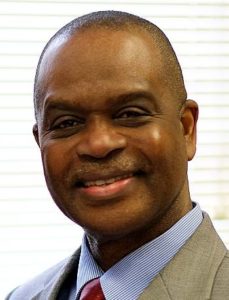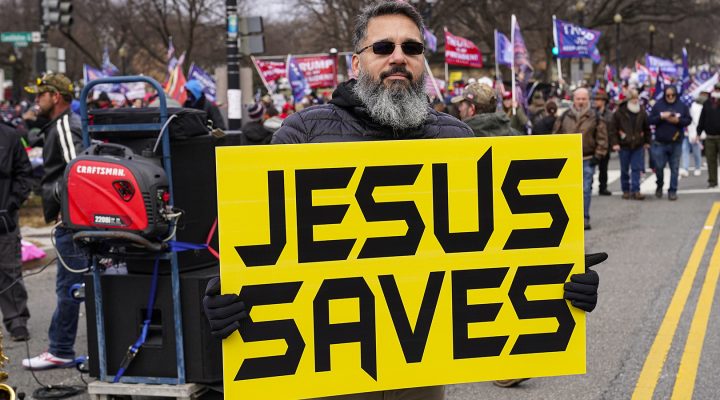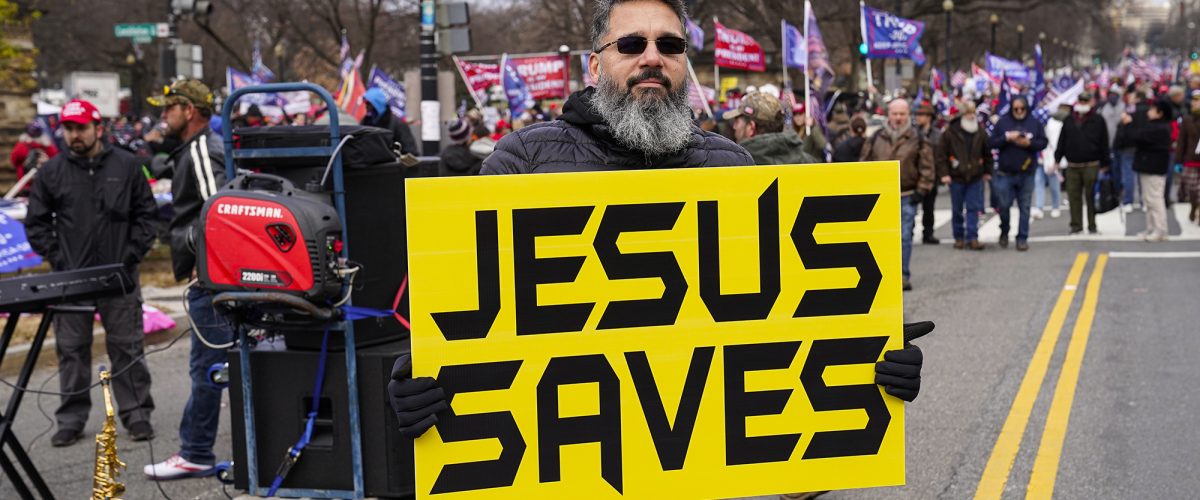The church should not remain silent when January 6 rolls around.
It was an insurrection. It was incited. It was planned. It was intended. It was a response to a dastardly lie. Trump did lose. Biden did win. People did die. Police officers were assaulted. Some did die as a result of the assault. People did desecrate and vandalize the Capitol. People did go in search of Mike Pence, shouting, “Hang Mike Pence!” They did erect gallows. People did search for Nancy Pelosi to harm or kill her. People did “baptize” these atrocious acts with “prayer” in the name of Jesus. Our democracy, republic, and democratic republic did become endangered, and do remain endangered. Someone did cause all of this. That someone was encouraged, enabled, and supported in many ways, by other powerful people who could and should have disabled or otherwise stop that someone; and so this was not the deed of only one man.

Michael Friday
To affirm all these truths is not political talk; it is simply the truth. To deny these truths isn’t a political perspective; it is dishonesty. No church folk should participate in, promote or enlarge dishonesty, especially the kind that destroys lives, demonizes others and kills people.
To remain silent is to allow the lie to gather momentum.
To remain silent is to tacitly support the lie.
To remain silent is to encourage the works of darkness.
To remain silent is to obviate confession of sin.
To remain silent is to delay repentance.
To remain silent is to fail in our prophetic responsibility, wherein we look the sinner in the face and say, like Nathan of old to David, “Thou art the man.”
To remain silent is to fail in our role as agents of reconciliation, a process that does not resile from naming sin, mischief and offering grace when confession and repentance emerges.
Since when is a virtue of the church silence in the midst of great sinfulness? Can the church claim to be church, when she fails, in the tradition of the prophets, whose ministry emerged when Israel sinned, to speak when America sins? Can the church claim to be effective when its people fail to call out sin anywhere, in the tradition of John the Baptist, who called out both his nation and “President” Herod?
“Since when is a virtue of the church silence in the midst of great sinfulness?”
When I agonize about the silence of the church, I, unfortunately, find myself being unintentionally partisan in reality, but still non-partisan in hope.
Here is what I mean: There is a segment of the American church that has been quite vocal in the past but is curiously silent now. People like Franklin Graham, whose signature ministry involves gifts for dispossessed children worldwide (Operation Christmas Child) shockingly — and yet, unsurprisingly — had not a mumblin’ word to say when dispossessed children were mercilessly being separated from their parents and caged on our southern border (and are still drowning there, today).
Other “evangelicals” like Paula White, Robert Jeffress, Mark Burns, Darrell Scott, Samuel Rodriguez, Ramiro Peña, James Dobson, et al — people who were loud and frequent in praise, “anointings” and support of events, policies and people between 2015 and 2020 — have gone dark and silent since January 6, 2021. These are not the church folk I expect to speak up now about January 6 and all the ugliness, sinfulness and terror it represents; but I wish they would.
I am an evangelical; most Baptists, of any stripe, are. The binary application of “evangelical” as an exact opposite to “Mainline” is artificial and is as misleading and non-definitive as terms like “conservative,” “liberal,” “progressive,” “pro-life” and “pro-choice.” (For example, I — and other people I know — identify as both pro-choice and pro-life.)
When I served as pastor of so-called Mainline churches, I had folk walk out in the middle of a sermon where I charged, on a Palm Sunday, that what the Jerusalem crowd was really chanting at Jesus on that donkey, was, “Make Israel Great Again!” In another place, some walked out when I said, in a Christmas sermon that “had Rudolph (the red-nosed reindeer) a Mexican nose, or Muslim nose, or refugee nose, they’d have laughed and called him names, also, and disallowed him to join any reindeer games or country.”
“When the foundations are being destroyed, what can the righteous do?”
Baptist News Global and other sources have reported on pastors who have resigned, retired or were fired for daring to do just what I am saying churches must do: speak up! How is it that “evangelicals” such as Bob Vander Plaats of Iowa could full-throatedly endorse Trump, at this 11th hour, after all these years, chaos, wickedness and vitriol, and be praised for it; and yet, parishioners in congregations among the “Mainliners,” and the true evangelicals among them and among the evangelicals have intimidated their pastors, preachers and messengers into deafening silence?
David asks a question in Psalm 11 (I always remember it on another date of infamy, 9/11): “When the foundations are being destroyed, what can the righteous do?” Among the innumerable answers in the rest of the Bible is one from Paul the Apostle: “Do not become weary in doing good” (Galatians 6:9).
One of the methods of those who destroy is to create a firehose of mischief so the righteous aren’t able to keep up.
In 2024, the church must take the risk of its prophetic forebears, to speak the truth, no matter the cost, or else the American church — as institution — along with America, shall lose and find the gates of hell prevailing against them. If that’s what it shall take for the church — as organism — to ignite herself again and prevail against the gates of hell (and it shall be through much tribulation) then so be it.
Michael Friday serves as executive minister of the American Baptist Churches of Greater Indianapolis and is author of the book And Lead Us Not Into Dysfunction: the Good, the Bad, and the Ugly, of Church institutions and Their Leaders.
Related articles:
The roots of white evangelical desperation | Opinion by Alan Bean
One thing that must happen in 2024 | Opinion by Mark Wingfield


